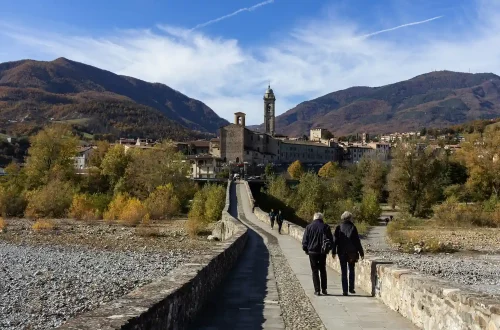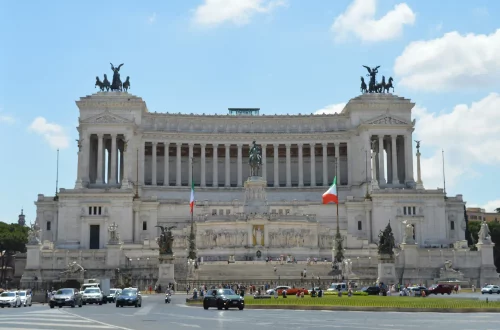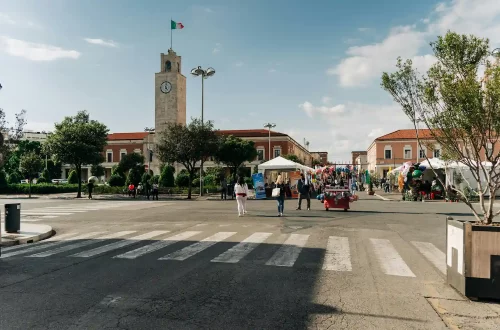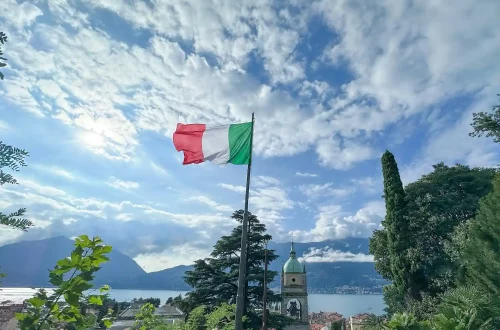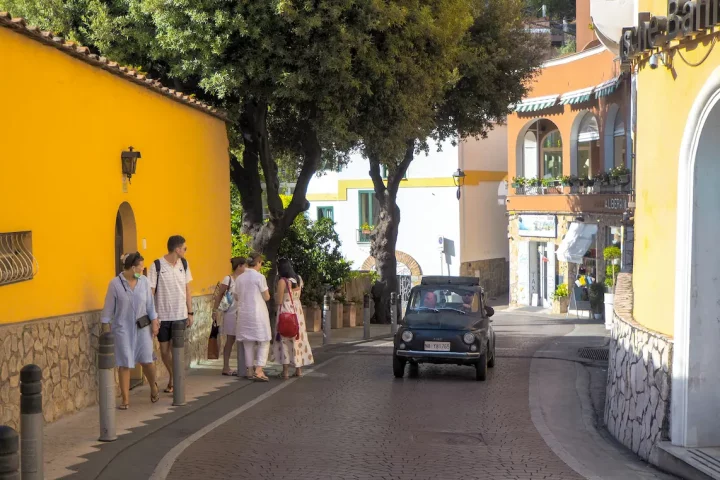Italy, a captivating blend of ancient heritage and modern vibrancy, beckons dreamers worldwide. Its timeless beauty, rich cultural tapestry, and enchanting landscapes have inspired travelers for centuries. In this essay, we’ll explore key aspects of Italian life, from familial bonds to culinary traditions, tracing ancestral threads that connect us to Italy’s past.
Unveiling Italy’s Cultural Heritage
Italian society is a captivating blend of ancient heritage and modern vibrancy. Here are some key aspects:
Family Bonds
Family ties are the cornerstone of Italian society. The importance of family is reflected in various traditions and daily practices. Italians cherish family gatherings and consider close family connections essential for a balanced life.
Specific examples of familial bonds of italian people
- Sunday Gatherings: The tradition of having a family meal on Sundays is widespread. It’s a time to bring relatives together, share meals, and reinforce emotional bonds. Sunday lunches often include traditional dishes that vary by region.
- Holidays and Festivals: During holidays such as Christmas and Easter, families gather to celebrate with special meals and traditions. For instance, during Easter, many Italian families prepare “Colomba Pasquale,” a traditional dove-shaped cake.
Specific traditions:
- Family Festivals: In many places, there are festivals and events that celebrate the importance of family, such as “Festa dei Nonni” (Grandparents’ Day), which highlights the role of grandparents in raising and caring for children.
Regional diversity
Italy is renowned for its regional diversity, with each area offering unique characteristics in terms of culture, cuisine, and dialect. This diversity is one of the country’s greatest cultural assets.
- Regional Cuisine: In northern Italy, dishes like risotto and polenta are common, while in the south, cuisine is more known for tomato-based dishes and olive oil, such as Neapolitan pizza. Tuscany is famous for its wines and meats, like the renowned “Bistecca alla Fiorentina.”
- Dialects and Languages: Each region in Italy has its own dialect or language, such as Sicilian in the south and Lombard in the north. These dialects often have ancient origins and reflect the historical influences of the region.
Regional festivals:
- Palio di Siena: A traditional horse race held in Siena, dating back to the 13th century. It’s a vibrant celebration of the city’s traditions and rivalries between different neighborhoods.
- Carnival of Venice: Famous for its elaborate masks and historical costumes, the Carnival of Venice attracts visitors from around the world to celebrate the city’s culture and history.
Take advantage of specialized assistance to secure your passport for a borderless future.
The Arts
Italy is the birthplace of the Renaissance and continues to be a vibrant center of art and culture. Reverence for art, music, and architecture is evident throughout the country.
- Painting and Sculpture: Artists like Leonardo da Vinci, Michelangelo, and Raphael transformed Italy into a hub of artistic innovation. Masterpieces such as the “Mona Lisa” and “David” are symbols of Italian creativity.
- Music and Opera: Italy has a rich musical tradition, with composers such as Verdi and Puccini, whose operas continue to influence and inspire musicians worldwide. Teatro alla Scala in Milan is one of the most renowned opera houses globally.
Contemporary visual arts
- Art Festivals: Events like the Venice Biennale and the Florence International Art Exhibition continue to celebrate and promote contemporary visual arts, keeping Italy’s artistic tradition alive and relevant.
Culinary traditions
Italian cuisine is a symphony of flavors—pasta, pizza, gelato, and more. Food isn’t just sustenance; it’s an expression of love and heritage.
- Typical Dishes: Italy is famous for its pasta, pizza, and gelato. Each region has its specialties, such as carbonara pasta in Rome, Margherita pizza in Naples, and tiramisu in Veneto.
- Local Ingredients: Italian cuisine is centered around fresh, local ingredients like tomatoes, olive oil, cheeses, and aromatic herbs. The emphasis on simplicity and quality of ingredients is a distinctive feature.
Gastronomic traditions:
- Aperitivo: The habit of having an “aperitivo” before dinner, where a variety of snacks and drinks are served, is a common social practice in Italy.
- Local Markets: Food markets, such as Campo de’ Fiori in Rome and the Central Market in Florence, are important spots for buying fresh and local produce.
Ancestral connection and citizenship
Imagine looking back through generations. In your family’s traditions, you’ll find echoes of Italy’s past. Perhaps your grandmother’s pasta recipe or your grandfather’s storytelling connects you to ancient roots. If you choose to reconnect with your ancestors through Italian dual citizenship, it’s important to know a few things:
The Path to Italian citizenship
- Jus Sanguinis: Italy grants citizenship based on the principle of Jus Sanguinis, or right of blood. This means that if you have Italian ancestors, you may be eligible for citizenship.
- Required Documentation: To obtain citizenship, you need to gather documents proving Italian lineage, such as birth, marriage, and death certificates of ancestors
For more informations, consult our article about “obtaining the italian citizenship”
Importance of Heritage
- Cultural Preservation: Reclaiming citizenship can be an important step in preserving and passing down Italian traditions and culture to future generations.
- Personal Connection: Many people who obtain Italian citizenship feel a deep personal connection to the history and culture of their ancestors, enriching their cultural identity.
io.citizen assistance
From paperwork to navigating the process, io.citizen supports you. Our experts guide you from start to finish.
Embrace Your Heritage
As you explore Italy’s cultural mosaic, remember that you’re part of this timeless tale. Whether you seek citizenship or simply wish to savor a plate of homemade pasta, Italy welcomes you with open arms.
Should you discover an Italian ancestor, and wish to pursue dual citizenship, it is advisable to hire expert assistance, such as io.citizen. Our team of experts is ready to make your dream of Italian citizenship come true! Contact us today!
Take advantage of specialized assistance to secure your passport for a borderless future.
